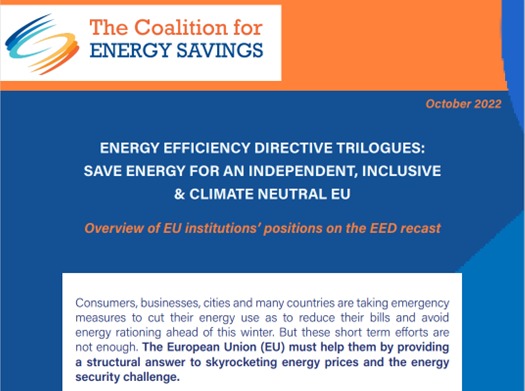Policy Brief: Energy efficiency directive trilogues

Consumers, businesses, cities and many countries are taking emergency measures to cut their energy use as to reduce their bills and avoid energy rationing ahead of this winter. But these short-term efforts are not enough. The European Union (EU) must help them by providing a structural answer to skyrocketing energy prices and the energy security challenge.
A strong Energy Efficiency Directive (EED) is the opportunity to put in place a legislative framework that accelerates energy savings in the EU in a well-planned and sustained way. Legislators need to take the EED trilogues very seriously: they must send the signal to EU citizens that, beyond energy sobriety, energy efficiency is the way to go to save energy, lower bills and ensure an independent, inclusive, and climate neutral EU.
RELATED ARTICLES
Planning for the 2023 EED: are EU countries up to the task? Updated analysis, April 2024
The update of the National Energy and Climate Plans (NECPs) is a pivotal first step to ensuring that the objectives of the Fit For 55 Package and REPowerEU are met and the revised legislation, including the 2023 Energy Efficiency Directive (EED), is correctly...
2040 Climate Target: No decarbonisation without energy savings.
On February 6, the European Commission published the communication on the 2040 climate target accompanied by an Impact Assessment (IA). It recommends that the EU cuts its greenhouse gas (GHG) emissions by a net 90% by 2040. The below briefing reviews how energy...
Planning for the 2023 EED: Are EU countries up to the task?
With only seven years to achieve the new 2030 EU energy efficiency target, national measures to implement the Energy Efficiency Directive (EED) must be put in place without delay to accelerate energy saving actions across sectors. While the 2023 EED has just entered...
